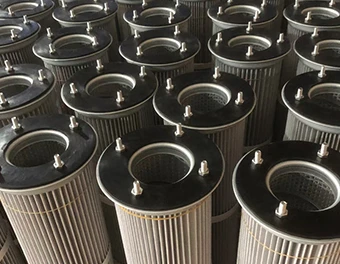 Tel:
+8615930870079
Tel:
+8615930870079
nov . 06, 2024 10:50 Back to list
Efficient Filtration Solutions Using Cartridge Vacuum Filter Technology for Industrial Applications
Understanding Cartridge Vacuum Filters Technology and Applications
In the realm of filtration technology, cartridge vacuum filters stand out as a vital component across various industries. These filters are designed to separate solid particles from liquids or gases through the application of vacuum pressure, resulting in efficient and effective filtration. This article delves into the working principles, advantages, and applications of cartridge vacuum filters.
Working Principle
Cartridge vacuum filters operate based on a relatively straightforward principle. They consist of a cylindrical filter medium housed within a framework. When a mixture of solids and liquids is introduced into the filtering system, a vacuum is applied. This vacuum creates a pressure differential, drawing the liquid through the filter medium while retaining the solid particles.
The solid contaminants are trapped on the surface of the cartridge, forming a cake layer that can enhance the filtration efficiency by further preventing finer particles from passing through. Once a sufficient layer of cake has formed, the vacuum pressure is maintained to continue the filtration process until the desired clarity is achieved. Regular maintenance, including the cleaning or replacement of filter cartridges, ensures optimal performance and longevity of the equipment.
Advantages of Cartridge Vacuum Filters
1. High Efficiency Cartridge vacuum filters are known for their high filtration efficiency. They can achieve clear filtrate and can filter out particles down to a few microns in size. The quality of the filtered liquid is often superior compared to other filtering methods.
2. Compact Design These filters boast a compact design, making them ideal for facilities with limited space. Despite their size, they offer significant performance and can handle varying flow rates and volumes.
3. Low Operating Costs While the initial investment in a cartridge vacuum filter may be significant, the long-term operating costs are relatively low. Their efficient performance leads to reduced energy consumption, and maintenance costs are minimized due to the durability of the cartridges.
4. Versatility Cartridge vacuum filters are versatile and can be employed in a wide range of applications. They can be used in chemical processing, food and beverage production, pharmaceuticals, and wastewater treatment, among others.
cartridge vacuum filter

5. Ease of Operation These filters are user-friendly, requiring minimal operator intervention. With automated systems available, monitoring and controlling the filtration process can be easily managed.
Applications
1. Chemical Industry In the chemical sector, cartridge vacuum filters are instrumental in the purification and separation of chemical products. They effectively handle slurries containing catalyst residues, precipitates, or any solid contaminants that need to be removed.
2. Food and Beverage Processing The food industry benefits from these filters through applications such as juice clarification, beer production, and dairy processing. The ability to produce clean and clear liquids is essential for maintaining product quality and compliance with health standards.
3. Pharmaceutical Manufacturing In pharmaceutical production, maintaining stringent hygiene and filtration standards is crucial. Cartridge vacuum filters ensure that active pharmaceutical ingredients are free from impurities, thereby improving the overall quality of medications.
4. Wastewater Treatment These filters play a significant role in the treatment of industrial and municipal wastewater. By separating solids from the liquid waste, they contribute to the sustainability and environmental compliance of wastewater management systems.
5. Mining and Mineral Processing In mining operations, cartridge vacuum filters are employed to separate water from minerals and tailings. Their ability to handle abrasive materials makes them suitable for the harsh conditions often encountered in this sector.
Conclusion
Cartridge vacuum filters represent a robust solution for various filtration needs across industries. Their efficiency, low operating costs, and versatility make them an essential component in maintaining quality and compliance in processes ranging from chemical production to food processing. As technology continues to evolve, the development of advanced cartridge filter systems promises enhanced performance, making them an indispensable part of modern industrial operations. Overall, understanding their design and applications is crucial for anyone involved in sectors reliant on effective filtration methodologies.
-
Nano Fiber Technology: Revolutionizing Cartridge Dust Collector FiltersNewsAug.06,2025
-
How Activated Carbon Air Cartridges Eliminate OdorsNewsAug.06,2025
-
Dust Filter Cartridge Handling Fine Particulate MatterNewsAug.06,2025
-
Cartridge Dust Collector Filter for Welding Fume ExtractionNewsAug.06,2025
-
Activated Carbon Filter Cartridge Effectiveness Against VOCsNewsAug.06,2025
-
Activated Carbon Air Filter Cartridge Benefits ExplainedNewsAug.06,2025

 Email:
Email:





